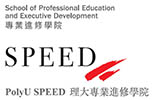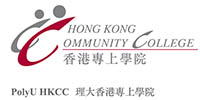雙語社評齊齊聽
[英語 (足本收聽)] Presented by Dr KWOK, Yuk-yin Frieda, Lecturer of Hong Kong Community College, The Hong Kong Polytechnic University
[普通話 (足本收聽)] Presented by Dr JIAO, Nina, Lecturer of Hong Kong Community College, The Hong Kong Polytechnic University
In the latest World Competitiveness Yearbook published by the International Institute for Management Development (IMD) in Lausanne, Switzerland, Hong Kong has moved up by two places to rank fifth. However, judging from Hong Kong's performance in different sub-items, it is easy to see the hidden challenges it faces. Hong Kong's competitiveness ranking has climbed back up mainly due to the strong economic rebound amid the pandemic last year and good public finances. It does not take into account the impact of the fifth wave of the pandemic on the economy this year.
In 2017, Hong Kong took the top spot in the IMD competitiveness rankings. In the following two years, it fell to second place, and in 2020 and 2021, it even dropped to the fifth place and the seventh place respectively. This year, Hong Kong's competitiveness has rebounded by two notches, returning to the fifth place.
Competitiveness rankings come in all shapes and forms. The IMD's World Competitiveness Yearbook is an international quantitative comparative report that attracts a relatively high degree of attention. Its analytical framework focuses on economic elements and business perspectives, with about 100 sub-items for scoring, which is mainly based on public data. Also included are surveys of some international organisations and those of high-ranking business executives' opinions. The way data is collected means it mostly reflects the state of the previous year rather than the immediate situation. When looking at any international survey, it is necessary to first understand its perspectives and limitations. There is no need to pay too much attention to some general rankings. Some changes in details are sometimes more worthy of attention.
According to the IMD's competitiveness survey, economic performance accounts for a certain proportion. The decline in Hong Kong's ranking in the past two years was partly related to the anti-amendment storm in 2019 and the outbreak of the pandemic in 2020 that hit Hong Kong's economy. Meanwhile, the rebound this year is related to the easing of the pandemic that began mid last year and the economic rebound. Last year, Hong Kong's economy grew by 6.4%. The IMD's new Yearbook lists the 15 most improved sub-items in Hong Kong, most of which are related to the economy and public finances. Yet, it is apparent that the scores on the relevant data do not reflect the heavy blow to Hong Kong's economy and people's livelihood from the fifth wave of the pandemic. In the second half of the year, Hong Kong's economic performance will depend not only on the pandemic situation and the pace of the return to normal, but also on the external situation. It is difficult to say for sure that the rebound in competitiveness has a solid momentum.
The current emigration wave in Hong Kong stems from political divisions. Amid the pandemic, Hong Kong's strict defences against imported cases are affecting the willingness of foreign talent to work in Hong Kong. The lack of a timetable for the reopening of borders with the mainland is also an obstacle to attracting mainland talent. Both the incumbent and incoming Chief Executives have emphasised that Hong Kong has the backing of China and that the city's advantages are not easily dispensable, adding that as long as Hong Kong's development is good, it will definitely attract domestic and foreign talent as well as people who have left to come back. But as the world is scrambling for talent, the Hong Kong government must not sit back and wait for a stroke of luck. Before introducing more measures to attract talent, the first thing to do is to eliminate the uncertainties surrounding the reopening of borders. Whether Hong Kong should reopen its borders with the mainland or foreign countries first is a difficult issue, and it is hard to have it both ways in the coming year or so. Rather than falling between two stools, it is better to discuss the matter seriously with the central government and formulate a solution that is in line with the interests of Hong Kong and China.
競爭力回升暗藏隱憂 人才流失問題須正視
瑞士洛桑國際管理學院(IMD)最新世界競爭力年報,香港排名回升兩級,位列第五,惟細察分項表現,不難發現香港面臨的隱憂。香港競爭力排名回升,主因是去年疫下經濟反彈強勁、公共財政狀况理想,並未反映今年第五波疫情對經濟的影響。
2017年,香港在IMD競爭力排行榜獨佔鰲頭,之後兩年退居第二,2020及21年更先後跌至第五及第七位。今年香港競爭力反彈兩級,重返第五位。
競爭力排行榜五花八門,IMD的競爭力年報,是較受注目的國際量化比較,分析框架側重經濟元素及商界角度,約百細項評分,以公開數據為主,另亦包括一些國際機構調查,以及企業高管意見調查,數據蒐集方式,意味它主要反映之前一年而非即時的狀况。看待任何國際調查,必須先了解其視角與局限,對於一些籠統排名,不必過分在意,一些細節上的變化,有時更加值得留意。
IMD的競爭力調查,經濟表現佔一定比重,之前兩年香港排名下跌,某程度與2019年反修例風暴及2020年疫情爆發打擊香港經濟有關;今年排名回升,則與去年中開始疫情緩和經濟反彈有關。去年本港經濟增長6.4%,IMD新一份年報,列出本港15個改善最多的細項,大多跟經濟及公共財政有關,可是相關數據評分,顯然並未反映第五波疫情對本港經濟民生的沉重打擊。下半年香港經濟表現,既要看疫情和復常進度,更要看外圍形勢,競爭力回升勢頭難言穩固。
當下香港移民潮,源於政治撕裂。疫下香港外防輸入從嚴,影響外國人才在港工作意欲;與內地通關無期,對於吸引內地人才,同樣是障礙。現任及候任特首均強調,香港有國家為後盾,優勢不易取代,只要香港發展得好,定可吸引海內外人才及離開了的人回來,然而世界各地都在搶人才,港府絕不能守株待兔,在推出更多措施吸引人才之前,首先就要消除圍繞通關的不明朗因素。先與內地還是外地通關,一年半載難望魚與熊掌兼得,與其兩頭不到岸,不如跟中央認真商量,制定一個符合香港和國家利益的處理方案。
明報社評2022.6.16







